MercoPress. South Atlantic News Agency
Tag: Brazil economy
-
Saturday, August 18th 2012 - 05:57 UTC
Central bank announces first signs of Brazilian economy recovery
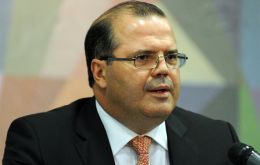
Brazil's economy enjoys sound fundamentals for sustainable growth, with an economic expansion likely to pick up speed in the next few quarters, Central Bank President Alexandre Tombini said at a business conference Friday.
-
Thursday, August 16th 2012 - 04:40 UTC
Brazilian president riding high in approval ratings despite economic slowdown
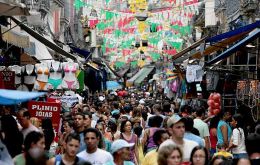
President Dilma Rousseff continues to enjoy high approval ratings as Brazilians remain mostly unaffected by the country's recent economic slowdown, according to a poll released on Tuesday.
-
Wednesday, July 25th 2012 - 07:53 UTC
Brazil tax revenue drops 6.55% in June, another symptom of slowing economy

Brazil's federal tax revenues dropped more than expected in June from the same period a year before, as a stubborn economic slowdown hurts corporate profits and prompts the government to grant tax breaks to some industries.
-
Saturday, July 21st 2012 - 07:45 UTC
Good signals from the Brazilian economy: inflation picks up in mid July
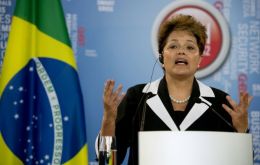
Consumer prices in Brazil rose faster than expected in the month to mid-July on higher food costs, suggesting the central bank may have less room than previously believed to cut interest rates much further.
-
Saturday, July 21st 2012 - 07:38 UTC
Brazilian government cuts 2012 growth forecast from 4.5% to 3%

The Brazilian government said Friday it was cutting its economic growth forecast for this year from 4.5% to 3% due to the impact of the global slowdown. However the figure is still higher than the 2.5% predicted by the Central Bank.
-
Saturday, June 2nd 2012 - 04:16 UTC
Brazil expands 0.2% in first quarter; stimuli measures still have to impact, says Mantega
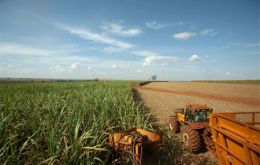
Brazil's economy barely expanded in the first quarter as frustrated business leaders cut back on investments, casting new doubt on the health of emerging markets.
-
Friday, June 1st 2012 - 17:29 UTC
Brazilian industrial output contracted for a second straight month in April

Brazil’s industrial output unexpectedly contracted for a second straight month in April even as the government steps up measures to boost economic growth.
-
Wednesday, November 23rd 2011 - 20:37 UTC
Brazil expects a flat third quarter but a strong recovery by end of the year
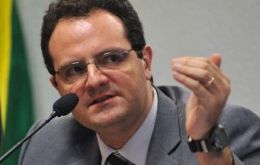
The performance of the Brazilian economy during the third quarter “could very well be flat” according to Nelson Barbosa the second most important man behind Guido Mantega in the Finance ministry.
-
Tuesday, September 13th 2011 - 07:31 UTC
Brazil’s Tombini anticipates tougher global slowdown than in 2008/09

Brazilian Central bank President Alexandre Tombini said in an interview with the local Valor Economico newspaper that Europe's expected difficulty in implementing a rescue package and slowing global growth are likely to justify the bank's recent surprise cut to interest rates.
-
Friday, May 13th 2011 - 14:47 UTC
Capital inflow to Brazil during April falls dramatically
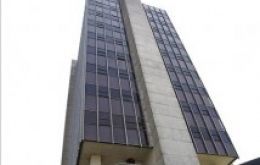
Brazil’s tax increase on foreign loans and debt sales to shield itself from the global currency war helped reduce by 88% the number of dollars that entered the country in April.
